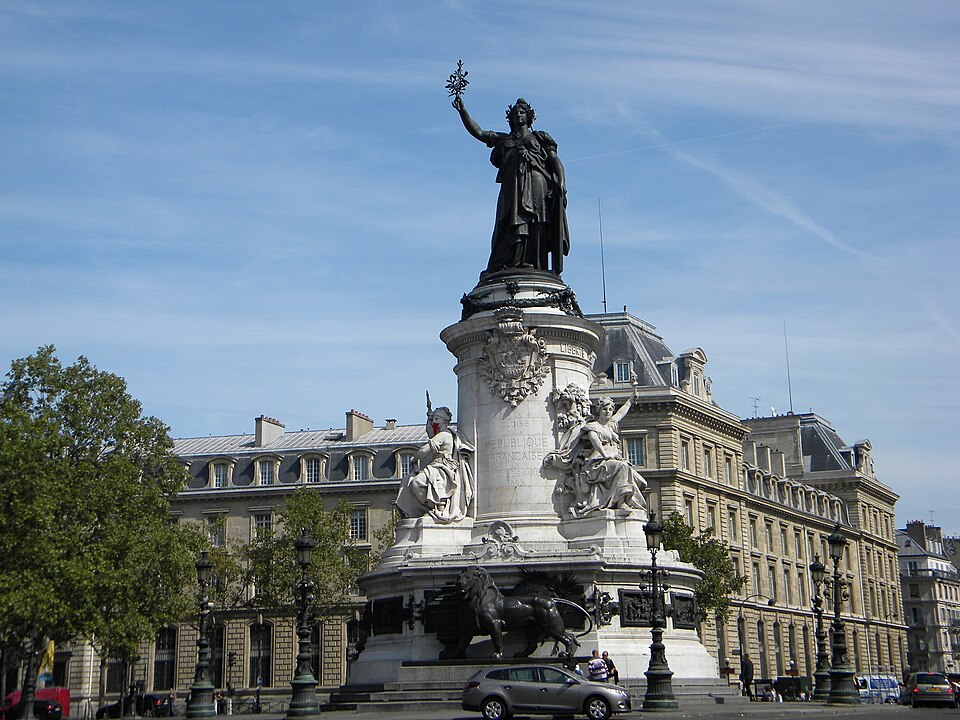By Henry Milner, Université de Montréal, The Conversation
Now that the Paris Olympic Games are over, France’s inability to form a government will probably once again dominate media coverage of the country. A caretaker government is currently in place amid ongoing negotiations over who will serve as French prime minister.
This coverage might include suggestions that France should replace its idiosyncratic second-ballot electoral system with a single-ballot one.
I believe that would be a mistake.
In places where the tendency to compromise might be culturally weak, it’s important that nations reinforce the necessity of compromise via institutions. Under France’s second-ballot system, voters can vote with their hearts in the first round, knowing they’ll be able to vote in the second round with their heads — in other words, strategically.
The first ballot gives the various minor/fringe parties a legitimate place inside the system, while the second ballot is designed to prevent them from acting as spoilers when a government is formed. In the French parliamentary election earlier this year, sufficient second-ballot votes were directed to parties and candidates best positioned to defeat candidates from Marine Le Pen’s far-right Rassemblement National (RN).
Letting off steam
Since the system was first instituted in 1962, it has worked as expected in most French elections.
When I first encountered it in 1983, I asked my French colleagues why France had not adopted proportional representation, like most of its European neighbours. I was told that single-vote systems lack this essential “letting off steam” aspect of their two-ballot system.
I observed how this political culture manifested itself in subsequent visits. It was reflected in the stances taken by representatives from France and southern European countries compared to those from northern Europe at meetings in the 1980s of the Socialist International, a worldwide organization of social democratic, socialist and labour parties.
I was an observer at those meetings, when northern Europeans proposed resolutions that could be implemented by all member states. The southern Europeans proposed policies in keeping with their more socialist principles, even though they knew they were unlikely to be embraced or enacted by northern members.
EU 2005 referendum
In a similar fashion, a majority of Dutch voters rejected the proposed European Union constitution in the 2005 referendum, convinced that the EU was moving too quickly toward a superstate that could threaten their national interests.
Three days later, the constitution was rejected in a referendum in France, despite the fact that Jacques Chirac’s government, corporate France, the media, most socialists, trade unionists, environmentalists and feminists were in favour. The No side’s arguments often sounded more pro-EU than those of the Yes side. Their posters proclaimed: “Oui à l’Union; non à la Constitution.”
The French media gave equal time to both sides, presumably to avoid being accused of bias in favour of the establishment. I listened every evening as the No side’s defenders, few of whom had any position in government or expectation of having one, placed their Yes side opponents on the defensive. The Yes side proponents struggled to counter sweeping condemnations of the EU constitution, a complex document of 448 articles.
I sensed that if French voters had been given a second vote, as they are during elections, a majority would have endorsed the flawed EU constitution as superior to the status quo after having had a chance to voice their concerns about it on the first ballot.
2002 French election
The 2005 EU constitution debate was reminiscent of the scene three years earlier in France during the 2002 presidential election.
I watched the televised presidential election debates from my Grenoble apartment. Every night, one of the 15 candidates was courteously interviewed, but never were any of the extreme left/fringe candidates asked about how their plans differed from the discredited socialist states of Eastern Europe.
In the first round, these various fringe candidates took enough votes from Socialist Party presidential candidate Lionel Jospin to position the far-right candidate, Jean-Marie Le Pen, into second place after Chirac. I then watched as Grenoble students, who had been passive in the first round, mobilized in force for Chirac in the second ballot to easily elect a more moderate right-wing presidential candidate to keep a further right one out.
This year’s French parliamentary elections took place in a country arguably even more divided than it was then.
Had it taken place under proportional representation, the result would have reflected voters’ overall preferences as far as their preferred party is concerned. But only in a two-party system like in the United States, or a two-party coalition system like in Sweden — where there are only two choices so that a vote for one is automatically a vote against the other — would their votes for their preferred party necessarily serve to keep the extremist parties they opposed out of power.
Stopping LePen
For many French voters today, keeping Le Pen’s RN out of power seems the primary consideration. This is what the recent second-ballot vote allowed them to do.
RN easily came in first in the initial round, but in the second round, its candidates faced only the strongest of the opposing candidates with the most support in the first round. That meant, to the disappointment of its supporters, RN ended up placing third. Despite that outcome, incidentally, Le Pen and her supporters did not question the legitimacy of the results.
At this point, a majority of French voters agree only on what they do not want. It won’t be easy to arrive at a compromise to form a government in the weeks ahead. Still, given France’s divisions, its electoral system is far from the worst.![]()
Henry Milner, Research Fellow, Electoral Studies, Political Science, Université de Montréal
This article is republished from The Conversation under a Creative Commons license. Read the original article.






















